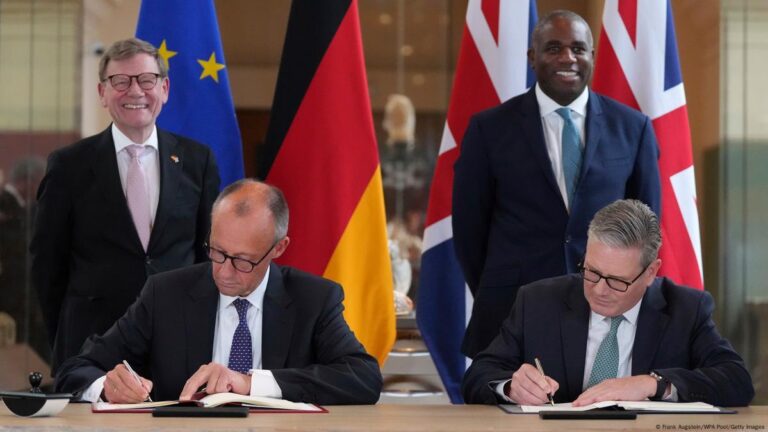The United Kingdom and Germany have signed a comprehensive treaty aimed at strengthening bilateral ties amid growing global challenges, Reuters reports. The landmark agreement reflects a mutual commitment to deepen cooperation across political, economic, and security domains, as both nations seek to bolster resilience against emerging threats. This development underscores a renewed partnership in Europe, signaling a strategic alignment at a critical juncture in international relations.
UK and Germany Strengthen Strategic Partnership to Address Security Challenges
In a decisive move to counter emerging global threats, the United Kingdom and Germany have formalized a broad treaty aimed at enhancing their security cooperation. This agreement encompasses a wide array of initiatives, from intelligence sharing and joint military exercises to cyber defense collaboration. Both nations have emphasized that this partnership is not just a response to current volatility but a strategic investment in maintaining stability across Europe and beyond.
Key elements of the treaty include:
- Enhanced intelligence integration to improve rapid threat assessment and response.
- Coordinated cyber security protocols to protect critical infrastructure.
- Joint training operations focusing on hybrid warfare and counterterrorism.
- Support for NATO initiatives reinforcing collective defense commitments.
| Focus Area | UK Contribution | German Contribution |
|---|---|---|
| Cybersecurity | Advanced threat detection systems | Robust national cyber units |
| Military Training | Special forces joint exercises | Troop interoperability programs |
| Intelligence Sharing | Real-time data exchange platforms | Enhanced HUMINT networks |
Economic and Technological Collaboration Central to New Bilateral Agreement
The newly inked treaty between the UK and Germany marks a significant stride in bolstering economic and technological synergy. Central to the pact is a commitment to joint innovation initiatives, aiming to harness cutting-edge technologies such as artificial intelligence, renewable energy, and quantum computing. Both nations emphasized the importance of creating a resilient supply chain ecosystem, designed to safeguard critical industries from global disruptions and geopolitical uncertainties.
Key components of this collaboration include:
- Investment in Green Technology: Shared funding for sustainable infrastructure projects focused on reducing carbon footprints.
- Digital Economy Partnerships: Enhancing data sharing frameworks to support cybersecurity and digital trade expansion.
- Workforce Development: Exchange programs and joint training initiatives to cultivate tech talent across borders.
| Sector | UK Focus | Germany Focus |
|---|---|---|
| Renewable Energy | Offshore wind farms | Solar tech innovation |
| Artificial Intelligence | Ethical AI development | Industrial automation |
| Quantum Computing | Algorithm research | Hardware design |
Experts Urge Continued Commitment to Joint Initiatives for Regional Stability
Leading analysts emphasize that the recently signed treaty between the UK and Germany represents more than a diplomatic achievement; it marks a pivotal enhancement in collaborative security frameworks. Both nations have committed to strengthening intelligence sharing, enhancing joint military training, and synchronizing efforts to combat emerging geopolitical threats. Experts believe this multi-layered cooperation will serve as a bulwark against regional destabilization, fostering resilience amid complex challenges.
Key elements of the continued partnership include:
- Integrated defense exercises to improve interoperability
- Coordinated cyber defense strategies targeting hostile actors
- Joint economic initiatives to support post-conflict recovery
| Initiative | Primary Focus | Expected Outcome |
|---|---|---|
| Defense Drills | Military readiness | Enhanced response time |
| Cybersecurity Alliance | Threat detection | Stronger digital infrastructure |
| Economic Recovery Fund | Stability funding | Regional growth support |
To Wrap It Up
As the UK and Germany formalize their commitment through this comprehensive treaty, both nations signal a renewed dedication to cooperation amid a rapidly shifting geopolitical landscape. By deepening their strategic, economic, and security ties, the two countries aim to bolster stability and resilience in the face of emerging global challenges. This landmark agreement marks a significant step in reinforcing the transnational partnership that will likely shape European and international affairs in the years ahead.




